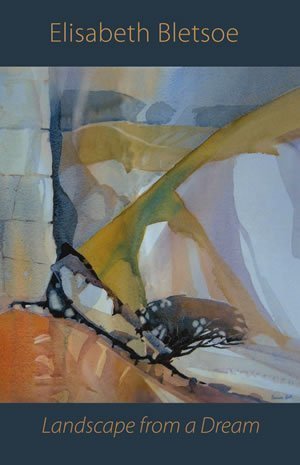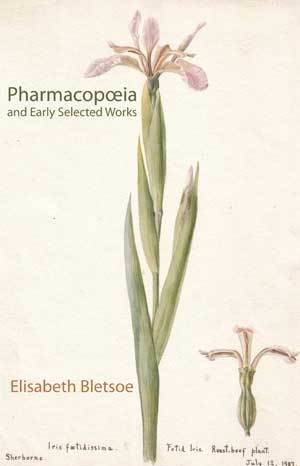Shearsman Store
Bletsoe, Elisabeth
Elisabeth Bletsoe was born and raised near Wimborne in Dorset; having been taught to read at an early age, she developed a love for the myths, legends and folklore of many cultures. After working for some time with learning disadvantaged adults she went to Cardiff University to study psychology where she also learned Welsh and Classical studies. During her time as a postgraduate, teaching both undergraduate psychology at the University and Women's Studies at the Extramural department, she joined the poetry performance group Cabaret 246 which had been instigated by the poet Chris Torrance. After several years reading in jazz clubs and the city's Chapter Art Centre, she co-founded, with Gill Brightmore, the women's performance group Deadlier than the Male, which provided an alternative to the male-dominated culture that prevailed in S. Wales at that time. During one of her solo readings, she met the publisher of Odyssey Poets Press, Derrick Woolf, who subsequently produced three of her works. In the early 90s she obtained a history degree, studied the Russian language, taught a creative writing course in the Vale of Glamorgan and was published widely in a range of small press magazines in Britain as well as the USA, Japan, Estonia and Argentina. In 1995 she returned to Dorset where she now lives with the writer and translator Ian Taylor. She has continued to pursue her interests in plant medicines and is currently training to be a homeopath, while also being involved with the administration of Sherborne Museum. Her work is informed by her knowledge of botany, folklore, geology and history.
"Elisabeth's poetry is not just highly unusual, it is an anomaly. Although at times it has been generatively linked to new-age concerns and at other times to linguistically-innovative late modernism, her work is, in the modern context, healthily and excitingly independent. When I first encountered it, her work seemed to be a form of highly-charged symbolism, by which I mean Symbolism as in the French school. I remember arguing about this with her publisher, Derrick Woolf, who viewed her work more through the feminist mist of some of its subject matter. What can be agreed on, however, is that she is definitely a poet of "place"; location remains important to her work, whether the Cardiff of her Regardians or the Dorset landscape of her Hardy-heroine sequences. These "places" are resolutely human, the scenes of a mental dynamism. The psychological aspect of her work runs deep, but its direction is different to that of other poets for whom the resonance of place and archetypes is important. This is because Elisabeth's poetry seems more concerned with creating the conditions, through her use of language, in which the reader might share in the "wow factor" of whatever was inspiring the writer. The effect is important, therefore the focus is on the language, on the poetry itself, not on the original impetus. Her work is therefore neither transparent, nor mystical, just powerful which is why in Britain it remains an anomaly. While having nothing 'American' about it, her poetry has more in common with American writers such as Robert Duncan." (Tim Allen, editor of Terrible Work ).




